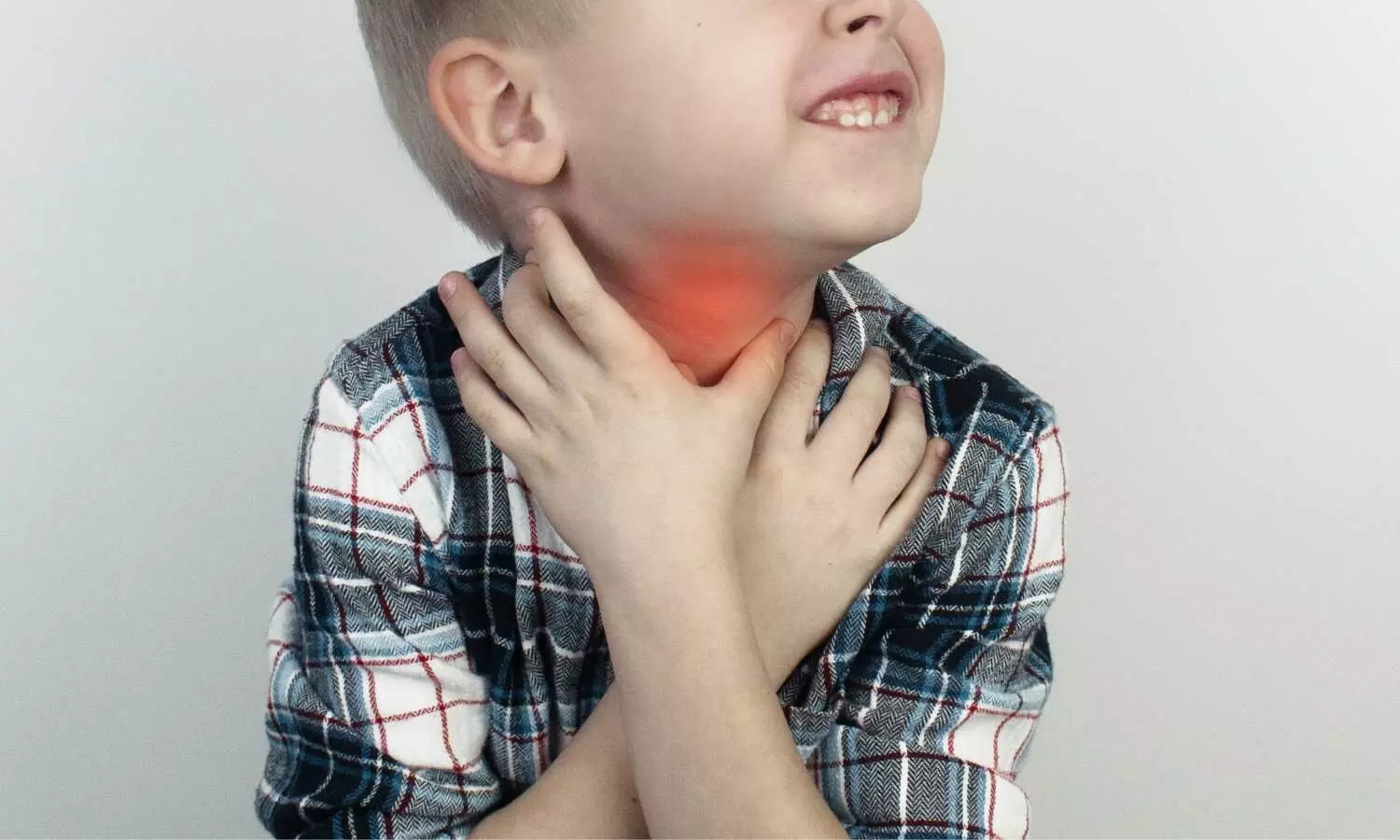Suprazygomatic Maxillary Nerve Blocks may lower Opioid Use after Pediatric Adenotonsillectomy: Study

Researchers have found that suprazygomatic maxillary nerve (SZMN) blocks can significantly reduce postoperative opioid consumption and pain in children undergoing intracapsular adenotonsillectomy. This recent study was conducted to address the complications arising from opioid use in pediatric pain management post-surgery. The study was published in JAMA Otolaryngology- Head and Neck Surgery and was conducted by Carole Lin and colleagues.
Adenotonsillectomy, a common pediatric surgical procedure, often necessitates effective pain management. Traditional methods include opioids, which carry risks of adverse effects and potential complications. The use of nerve blocks presents an alternative for managing postoperative pain without relying heavily on opioids.
This prospective, randomized, blinded clinical trial was conducted at a single tertiary pediatric hospital from November 2021 to March 2023. Sixty pediatric patients aged 2-14 years, scheduled for intracapsular adenotonsillectomy, were included. Exclusion criteria included combined surgical procedures, developmental delay, coagulopathy, chronic pain history, known or predicted difficult airway, and unrepaired congenital heart disease. Participants were randomized into two groups: one receiving bilateral SZMN blocks (block group) and the other not receiving the blocks (control group).
Under general anesthesia, the block group received bilateral SZMN blocks. The primary outcomes measured were opioid consumption, FLACC (Face, Legs, Activity, Cry, Consolability) scores, and the rate of opioid-free stays in the postanesthesia care unit (PACU). Secondary outcomes included recovery duration and the incidence of adverse effects such as nausea, vomiting, block site bleeding, and emergency delirium.
-
The final analysis included 53 patients (mean age 6.5 years; 55% female, 45% male), with 26 in the block group and 27 in the control group.
-
The block group demonstrated a mean opioid morphine equivalent consumption of 0.07 mg/kg during PACU stay, significantly lower than the 0.15 mg/kg in the control group (mean difference, 0.08; 95% CI, 0.01-0.15; Cohen d, 0.64).
-
Additionally, 58% of patients in the block group had opioid-free PACU stays, compared to 26% in the control group (mean difference, 32%; 95% CI, 5%-53%).
-
FLACC scores were lower in the block group (0.7 vs. 1.6; mean difference, 0.9; 95% CI, 0.2-1.6; Cohen d, 0.7), indicating less pain.
-
Both groups had similar rates of adverse events, and no nerve block-related complications were reported.
The study's findings support the use of SZMN blocks as an effective method for reducing opioid use and managing pain in pediatric intracapsular adenotonsillectomy. The nerve blocks provided meaningful reductions in postoperative opioid consumption and pain scores without increasing adverse effects.
Suprazygomatic maxillary nerve blocks are a valuable adjunct tool for managing postoperative pain in pediatric intracapsular adenotonsillectomy. They significantly reduce opioid consumption and pain scores, offering a safer and effective alternative to opioid-inclusive pain management strategies. Further research may solidify their role in pediatric surgical care.
Reference:
Lin, C., Abboud, S., Zoghbi, V., Kasimova, K., Thein, J., Meister, K. D., Sidell, D. R., Balakrishnan, K., & Tsui, B. C. H. (2024). Suprazygomatic maxillary nerve blocks and opioid requirements in pediatric adenotonsillectomy: A randomized clinical trial. JAMA Otolaryngology-- Head & Neck Surgery. https://doi.org/10.1001/jamaoto.2024.1011
from Medical News, Health News Latest, Medical News Today - Medical Dialogues | https://ift.tt/cwTntgz
Comments
Post a Comment